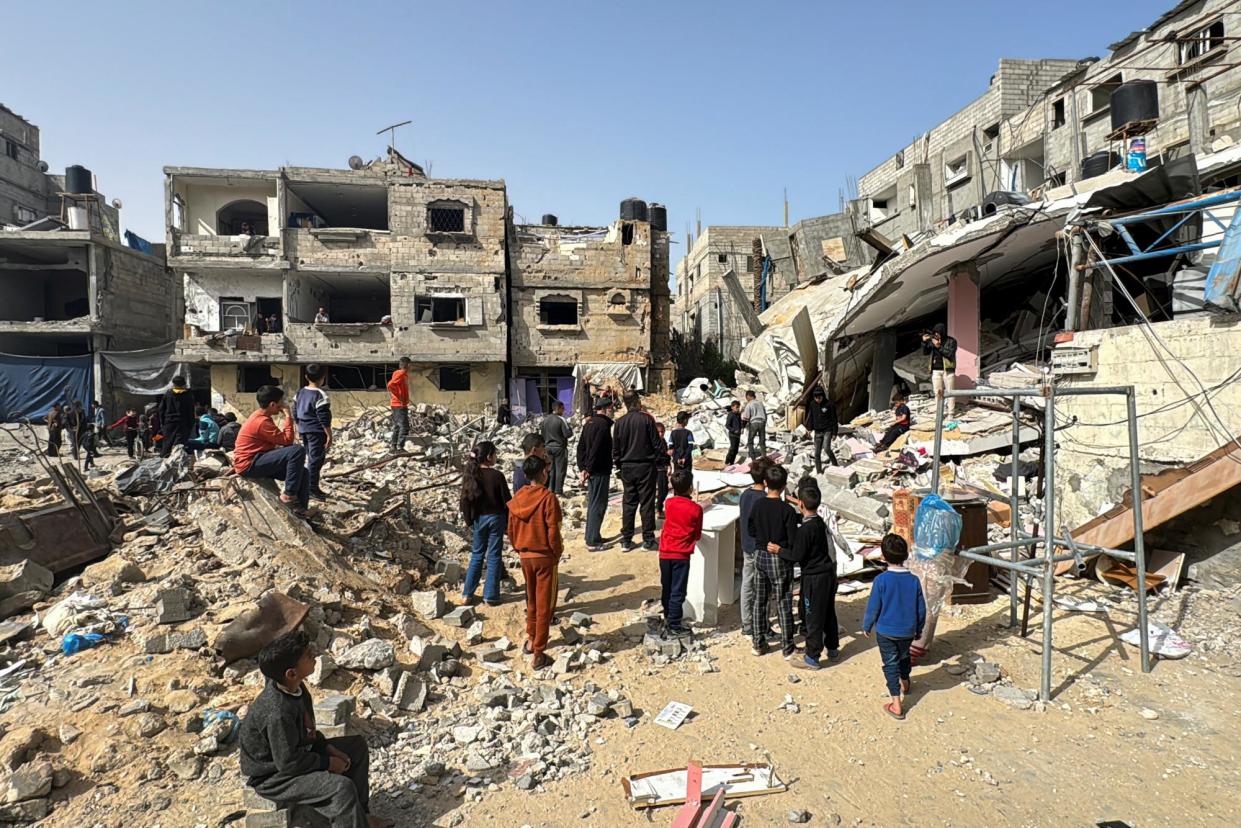Sydney man’s wife and three children to be evacuated from war-torn Gaza

The Sydney father whose Australian children are living in a tent in Gaza has been told his family will be evacuated from the war-torn Palestinian enclave over the weekend.
Late on Thursday, after four months of requesting urgent help for his family, Mohammed Almassri, 43, was contacted by a Dfat case worker and told his three children and wife would be evacuated from Rafah on Saturday or Sunday, he said. His mother’s request to leave was not approved, he said.
Related: ‘They live in a tent now’: the desperate plight of Australian children trapped in Gaza
“I am happy about my children but I am not happy about my mother because now she is alone,” he told Guardian Australia.
“I need my mum to come as well. I’m worried about her health. She’s an old lady, she’s been waiting a long time, really she’s disappointed and she’s sad about her situation now.
“We need them to be together. The children have grown up with their grandmother.”
The architectural engineer’s children, Hamza and Amani, aged seven and six, were born in Sydney and moved to Gaza in 2019. His third son, 17-month-old Waleed, was born in Gaza and granted Australian citizenship last week.
They had been living with Almassri’s Palestinian mother and his second wife – the mother of Waleed – in Khan Yunis, but their home was destroyed under Israeli bombardment and they are now based in a displaced people’s camp in the besieged southern Gaza city of Rafah.
A Department of Foreign Affairs and Trade (Dfat) spokesperson would not comment on the development, citing privacy obligations around individual family circumstances.
After Hamas’s terror attacks on Israel on 7 October and Israel’s subsequent bombardment of Gaza, Almassri was told his Australian children were priorities for evacuation, but had been waiting for help from the Dfat since November.
Both his mother and wife hold temporary Australian visas and had not been given permission by Egyptian and Israeli authorities to cross the border at Rafah.
While Dfat last week said that it was doing all it could to ensure the children’s safe exit from Gaza, Nasser Mashni, the president of the Australia Palestine Advocacy Network, said it was “unconscionable” the Australian government had not expedited consular support to the Australian children, and the Australian community “should feel appalled” that fellow citizens had been “left to fend for themselves”.
Graham Thom of Amnesty International in Australia acknowledged the complexity of the case, given the children’s carers are not Australian citizens.
While it was not clear how many Australians remained in Gaza, as of 21 March 217 Australian citizens, permanent residents and their families had left the enclave with the help of the government, Dfat confirmed.

 Yahoo News
Yahoo News 
